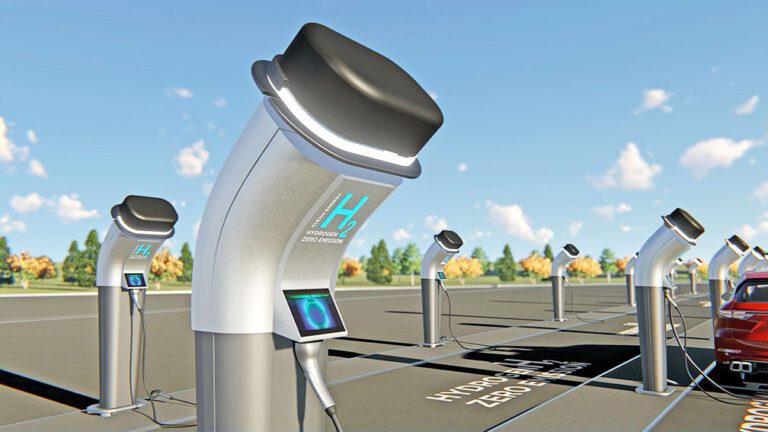ATLANTA — Georgia Gov. Brian Kemp is aiming for his state to lead the nation in the number of commercial vehicle hydrogen fueling stations.
According to a news release, Kemp has instructed the Georgia Department of Transportation (GDOT) to begin working with private sector partners on how best to approach deployment of such stations.
As a first step, GDOT has issued a Request for Information (RFI) to seek feedback from businesses who use hydrogen-powered vehicles.
“As the number one state for business with world-class institutions of higher learning, Georgia is on the cutting-edge of innovation and the jobs of the future,” Kemp said. “But as I always say, we can’t rest on our laurels. I want to thank GDOT and our partners in the private sector who will ensure that when it comes to hydrogen energy, we will do as we have in so many other areas — lead.”
The news release notes that “hydrogen-powered electric fuel cells are a promising technology for commercial vehicles like large trucks. Applications include enabling long travel distances with a fast refueling process for heavy vehicles, which deliver goods throughout the state. These and other efforts are in line with Governor Kemp’s goal of making Georgia the e-mobility capital.”
During the RFI process and ensuing planning discussions, GDOT will consider the full range of potential demand for hydrogen for transportation uses. This will include the option to bring down the cost of hydrogen refueling station development in Georgia.
Other aspects to be considered include possible locations for hydrogen refueling station deployment, with initial primary consideration given to areas adjacent to Georgia’s ports, according to the news release.
“The market for hydrogen as a transportation fuel is in the early stages of development in a few regions of the U.S.,” according to the news release. “It has already deployed successfully in several other economically advanced countries. Currently, hydrogen’s predominant commercial use is in the industrial sector and for fertilizer and methanol production, with the U.S. market consuming approximately 10 million metric tons of hydrogen annually. The total current value of the hydrogen market in the U.S. is estimated to be approximately $17 billion. By 2050, the total estimated revenue is projected to be more than $130 billion per year, meeting 14% of U.S. energy demand.”
Truck manufacturers are working to develop hydrogen technology and improve hydrogen-powered vehicles.
PACCAR and Toyota Motor North America Inc. (TMNA) recently announced plans to develop and produce zero emissions, hydrogen fuel cell electric (FCEV) Kenworth and Peterbilt trucks powered by Toyota’s next-generation hydrogen fuel cell modules.
And Hyundai Motor Company has introduced a new Class 8 hydrogen fuel cell electric tractor for use in North America as part of the company’s initiative to move toward alternative energy sources for its vehicles.
A recent North American Council for Freight Efficiency report found that hydrogen may be the harbinger of a new green industrial revolution, or just the progression from one fossil fuel-based energy carrier to another with greater emphasis on reducing emissions.
Either way, the report notes, hydrogen will be a factor in future long-distance freight hauling in combination with battery electric vehicles for shorter range operations.
The Trucker Staff contributed to this report.
The Trucker News Staff produces engaging content for not only TheTrucker.com, but also The Trucker Newspaper, which has been serving the trucking industry for more than 30 years. With a focus on drivers, the Trucker News Staff aims to provide relevant, objective content pertaining to the trucking segment of the transportation industry. The Trucker News Staff is based in Little Rock, Arkansas.














